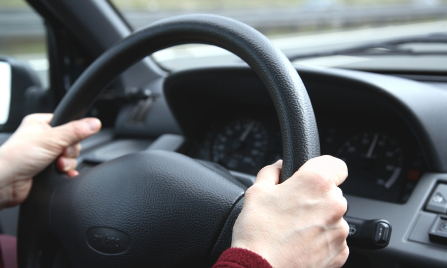A second arrest for driving under the influence carries additional penalties for a person’s driving privileges. First, the statutory summary suspension will take effect 46 days after the date of arrest. If the person has either a DUI or summary suspension in the last 5 years, then that person is not a ‘first offender’ for purposes of the summary suspension. Consequently, the summary suspension will be for one year for failing the chemical test and 3 years for refusing the test.
A person who is not a first offender is not eligible for a Monitoring Device Driving Permit (MDDP). Not all lawyers would agree, but in my opinion, for people who are not first offenders, the summary suspension takes on an importance that is equal to or greater than the misdemeanor offense of DUI.
To begin, the Secretary of State will revoke the driving privileges of any person who receives a conviction for the offense of DUI pursuant to 625 ILCS 5/6-205(a)(2). The statute provides:
Except as provided in this Section, the Secretary of State shall immediately revoke the license, permit, or driving privileges of any driver upon receiving a report of the driver’s conviction of any of the following offenses:
***
Violation of Section 11‑501 of this Code or a similar provision of a local ordinance relating to the offense of operating or being in physical control of a vehicle while under the influence of alcohol, other drug or drugs, intoxicating compound or compounds, or any combination thereof;
See 625 ILCS 5/6-205(a)(2).
Although the revocation that comes from a conviction for DUI is a serious penalty, there is relief available.
For instance, the law in Illinois allows people who are revoked to apply for a restricted driving permit (RDP). The restricted driving permit is commonly called a hardship license because the statute says it is appropriate only where the person would suffer an undue hardship without an RDP.
The hardship license statute says the following:
Except as provided in subsection (c‑5), whenever a person is convicted of any of the offenses enumerated in this Section [DUI at 625 ILCS 5/11-501], the court may recommend and the Secretary of State in his discretion, without regard to whether the recommendation is made by the court may, upon application, issue to the person a restricted driving permit granting the privilege of driving a motor vehicle between the petitioner’s residence and petitioner’s place of employment or within the scope of the petitioner’s employment related duties, or to allow the petitioner to transport himself or herself or a family member of the petitioner’s household to a medical facility for the receipt of necessary medical care or to allow the petitioner to transport himself or herself to and from alcohol or drug remedial or rehabilitative activity recommended by a licensed service provider, or to allow the petitioner to transport himself or herself or a family member of the petitioner’s household to classes, as a student, at an accredited educational institution, or to allow the petitioner to transport children living in the petitioner’s household to and from daycare; if the petitioner is able to demonstrate that no alternative means of transportation is reasonably available and that the petitioner will not endanger the public safety or welfare; provided that the Secretary’s discretion shall be limited to cases where undue hardship, as defined by the rules of the Secretary of State, would result from a failure to issue the restricted driving permit.
See 625 ILCS 5/6-205(c)(1).
Most people are informed about the possibility of driving to and from work. However, the RDP also allows a person to seek medical care, counseling, etc.
After conviction for DUI, the defendant should always seek a hardship license.
But where the defendant is not a first offender because of a prior DUI or summary suspension in the last 5 years, he is disqualified from getting an RDP. A person who is not a first offender cannot qualify for any driving permit whatsoever during the summary suspension.
The statute provides the following:
Following a statutory summary suspension of driving privileges pursuant to Section 11‑501.1 where the person was not a first offender, as defined in Section 11‑500, the Secretary of State may not issue a restricted driving permit.
See 625 ILCS 5/6-208.1(g).
And so, the defendant is in a situation where the penalty of a DUI conviction, a 1-year revocation, would be exceeded by a 3-year summary suspension in which no driving relief is available. One can get a hardship license during a revocation, but not during a summary suspension.
In these cases, the defendant has to make tough choices. If the prosecution makes an offer to rescind the 3-year summary suspension in exchange for a conviction for DUI, this may be the best outcome. The loss of driving privileges would last for one year as opposed to three, and during that one year, the person would be eligible for a hardship license. Supposing the request for an RDP is denied, the loss of a license for one year is considerably less than no driving for three years.


